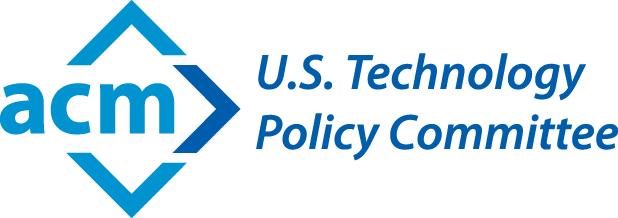Statement cites threats to rights of society’s most vulnerable populations

Credit: Association for Computing Machinery
The Association for Computing Machinery’s US Technology Policy Committee (USTPC) today called for “an immediate suspension of the current and future private and governmental use of facial recognition (FR) technologies in all circumstances known or reasonably foreseeable to be prejudicial to established human and legal rights” in its “Statement on Principles and Prerequisites for the Development, Evaluation and Use of Unbiased Facial Recognition Technologies.”
After assessing the state of FR technology, USTPC concludes that “the technology too often produces results demonstrating clear bias based on ethnic, racial, gender, and other human characteristics recognizable by computer systems” and, consequently, that “its use has often compromised fundamental human and legal rights of individuals to privacy, employment, justice and personal liberty.”
On release of the new Statement, USTPC Chair James Hendler put the Committee’s findings and action in perspective: “FR technology has many benign uses and a bright future. But, the unfortunate fact is that it’s simply not yet reliably unbiased enough to be used when people’s lives, livelihoods–and certainly liberty–are at stake. When all is considered, it is time to take a pause until we can get this technology under proper controls.”
Drawing on the expertise of its membership, which includes computer scientists, as well as lawyers and public policy professionals, USTPC’s statement also outlines a set of guiding principles. Organized around five core areas–accuracy, transparency, governance, risk management, and accountability–the principles constitute recommendations that could form the basis of future standards and regulations.
###
About the ACM US Technology Policy Committee
ACM’s US Technology Policy Committee (USTPC) serves as the focal point for ACM’s interaction with all branches of the US government, the computing community, and the public on policy matters related to information technology. The Committee regularly educates and informs Congress, the Administration, and the courts about significant developments in the computing field and how those developments affect public policy in the United States.
About ACM
ACM, the Association for Computing Machinery, is the world’s largest educational and scientific computing society, uniting computing educators, researchers and professionals to inspire dialogue, share resources and address the field’s challenges. ACM strengthens the computing profession’s collective voice through strong leadership, promotion of the highest standards, and recognition of technical excellence. ACM supports the professional growth of its members by providing opportunities for life-long learning, career development, and professional networking.
Media Contact
Jim Ormond
[email protected]
Original Source
https:/




